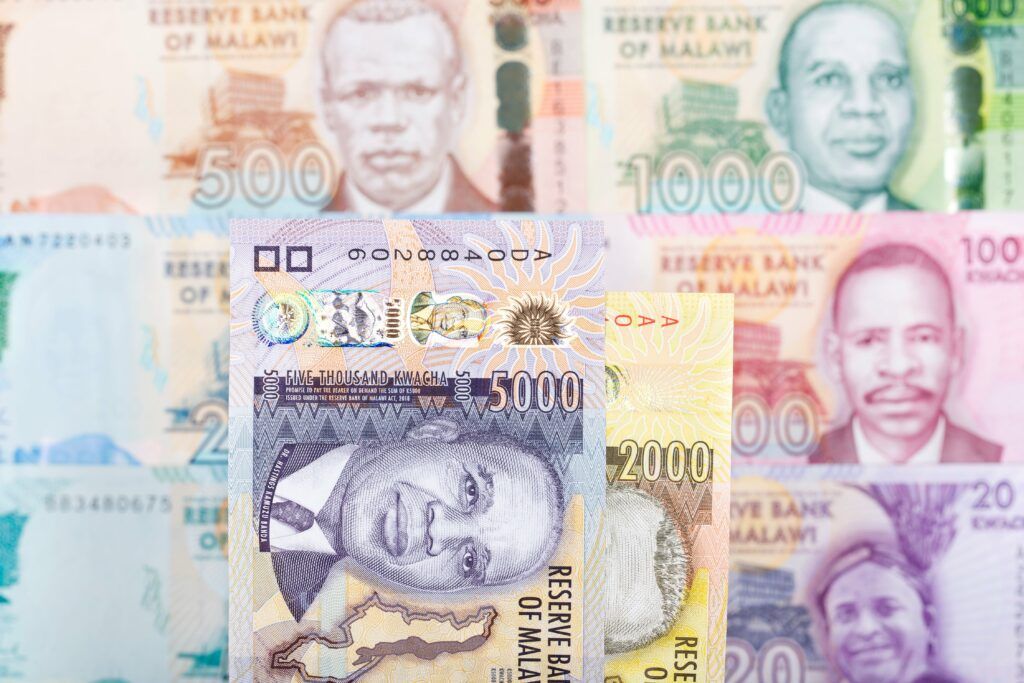If an overseas currency is something that you’re interested in, then keep reading because, in this blog, we’re talking all about the official currency of the African nation, Malawi.
Named the Malawian Kwacha, operating under the currency code MWK, the Kwacha was brought into Malawi in 1971 to replace the Malawian pound, modelling itself on Zambia’s own Kwacha currency.
Here are five things you didn’t know about the currency – and where you can exchange Kwacha back into pounds following your African adventure.
1. Kwacha Means Dawn
Let’s look at the term itself and what the Malawian Kwacha symbolises.
Kwacha means ‘Dawn’, underpinning the idea of the Malawian Kwacha being conceived and released in recognition of the independence earned by the nation. We can see that this was modelled on the rollout of Zambia’s own Kwacha, taking on the same name in support of the same underlying principle.
2. The Malawian Kwacha is Worth 100 Tambala
Just as a British pound equates to 100 individual pennies, so does the Malawian Kwacha have its own subsidiary. In this case, a Kwacha equates to 100 Tambala.
Interestingly, this name has its own name – and it’s linked with the meaning of Kwacha.
Tambala translates to ‘rooster’ and was selected by the Malawi government because it takes 100 roosters to announce the dawn. These names tell us that Malawi’s currency is firmly built on the idea of the nation’s independence.
3. The MWK is a Free-Floating Currency
We’ll come back to the value of MWK later in this blog, but for now, let’s consider precisely how the Malawian Kwacha became a free-floating currency.
First rolled out in 1971, the position of the MWK continued to spiral downwards until it pegged itself to the US dollar in 2005. This led to an unofficial exchange rate on the black market, which caused the Kwacha to separate itself from the United States in 2012 and operate as a free-floating currency.
As a free-floating currency, the Malawian Kwacha essentially operates as a standalone currency, meaning its value does not depend on or connect to any other currency.
From a value standpoint, this means that the financial value of the Malawian Kwacha is solely based on the country’s success in terms of the supply and demand of global goods.
4. £1 is Equal to £2,099 MWK
As of February 2024, a single British pound is equivalent to 2,099 MWK.
This tells us that the economic position of Malawi and its currency is incredibly weak, with the nation relying heavily on the International Monetary Fund, the World Bank, and other countries for financial and economic support.
5. The Kwacha Notes Are Colour-coded and Rise to 2000 MWK
Before we dive into the designs and denominations available, it’s worth noting that there are different ways of reading and referring to a Malawian Kwacha. You can either use MWK or place a single K at the start of the number – for example, saying that the highest banknote available is K2000.
The most recent banknote series was issued in 2021, released in 2012. You will see that the Malawian Kwacha is colour-coded – with notable individuals and outlines covering both sides of each note.
Reverend John Chilembwe appears on both the K500 and K2000 notes, a notable figure in opposing colonialism in Malawi. Other figures include Hastings Kamuzu Banda, Malawi’s leader from 1964 to 1994, and Rose Lomathinda Chibambo, who was a part of the party declaring independence in Malawi.
On the reverse of these notes, you will find references to local landmarks, wildlife, national parks, and more – making the banknotes a celebration of the best things about Malawi.
Where to Exchange Malawian Kwacha Back in British Pounds
If you return home from Malawi with leftover Kwacha, the best port of call is an online service like Leftover Currency. Simply enter the amount of currency you have, whether notes or coins and let us do the sorting and conversion for you.
All you have to do is send us the foreign currency and let us know if you want a direct bank transfer or the amount to be donated to your chosen charity – with our team handling the rest.
It’s convenient and easy and gives you access to the best exchange rates on the market.
And if you happen to come across a currency we don’t currently offer while on your travels, let us know! We are always looking to expand our selection and cover all corners of the globe – and we need your help to make it happen.

 Loading
Loading